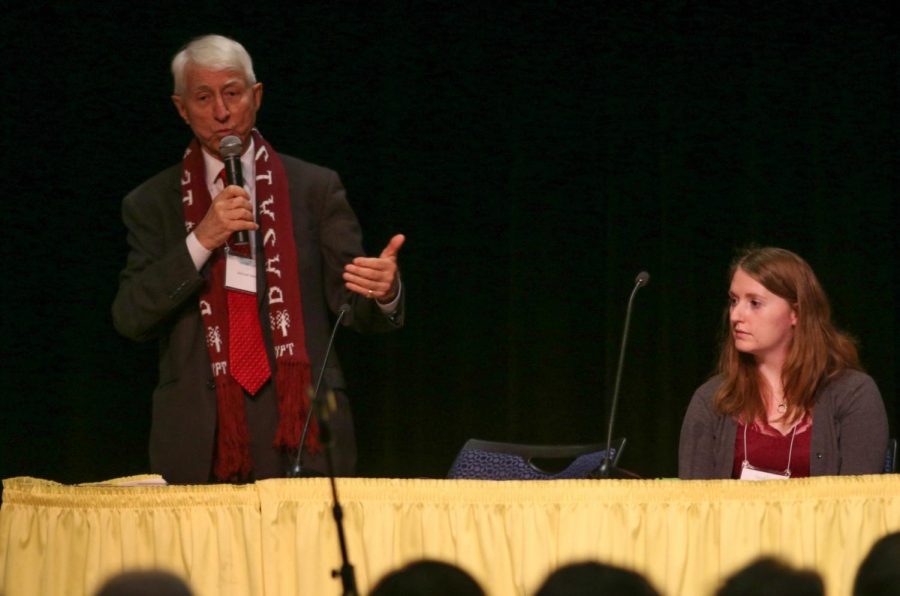South Dakota World Affairs Council hosts seventh annual symposium
The South Dakota World Affairs Council held a Global Health Symposium in the Volstorff Ballroom on Jan. 28 and 29. On Friday, Michael Saba led the discussion of contributions to Global Health by South Dakotans.
February 3, 2016
Each year the South Dakota World Affairs Council organizes a symposium to address issues affecting our region and the world; this year’s topic was global health.
The Harding Distinguished Lecturer was Katherine Bliss, senior associate with the Global Health Policy Center at the Center for Strategic and International Studies in Washington, D.C. She spoke at the Volstorff Ballroom Jan. 28 at 7 p.m.
Her lecture, titled Governing Global Health in an Interconnected World, focused on topics such as the elements of governance, the international health regulations and current initiatives to combat global diseases.
“When I talk about governance, what I’m talking about is really the concept of collective action in attempting to facilitate cooperation, discussion, political engagement, in pursuit of common goals,” Bliss said.
Because of globalization, the boundaries between developed and developing countries have blurred. This creates a world where complicated health crises appear both similar and different, according to the SDWAC’s description of the event.
During her lecture, Bliss compared international and global health governance. She said international governance works at a more state-by-state level, negotiating borders and treaties and international agreements, which differs from global governance.
“Increasingly, though, you’ll hear people talk about global health governance,” Bliss said. “In many ways, this idea of global governance recognizes the diminished importance these days of border.”
Some global health governing agencies Bliss highlighted during her lecture were the Global Polio Eradication Initiative, the Global Fund, the Global Financing Facility and Gavi, the Vaccine Alliance.
The discussion on global health continued the following day with lecture panels. Panels included Using the Health-Care Section as a Model for Nation Building, the Global Interface Between Animal and Human Health and South Dakotans Contribute to Global Health.
The Global Interface Between Animal and Human Health was led by Christopher Chase, a professor in the Department of Veterinary and Biomedical Sciences, who discussed how most diseases humans deal with come from animals. Joy Scaria, assistant professor in the Department of Veterinary and Biomedical Sciences, focused on clostridium difficile colitis or “c-diff” while Radhey Kaushik, professor and assistant department head of the Department of Biology and Microbiology, examined the influenza virus.
“Almost 20 percent of the world population gets infected with the flu annually,” Kaushik said. “I think with that type of data I need not convince you that this is a very important disease.”
He went on to discuss how the flu is the most infectious disease humankind deals with and how it has an animal component.
The event was co-sponsored by the Colleges of Nursing and Pharmacy. Displays and information from the Wellness Center, Healthy Jacks, the Office and International Affairs and Outreach and Service Learning: Improving Nutrition in Belize were provided.
SDWAC seeks to stimulate interest in and promote discussion of international relations and U.S. foreign policy, but takes no stand on current issues. It was founded in 2004 exclusively for educational purposes to provide information and learning opportunities about world affairs.





















